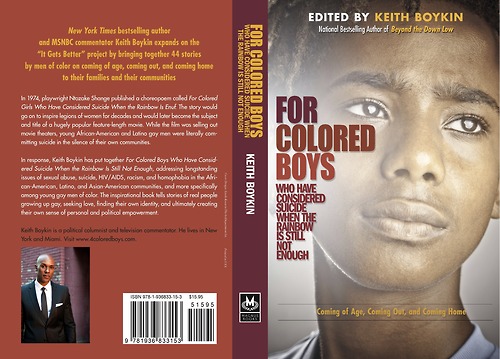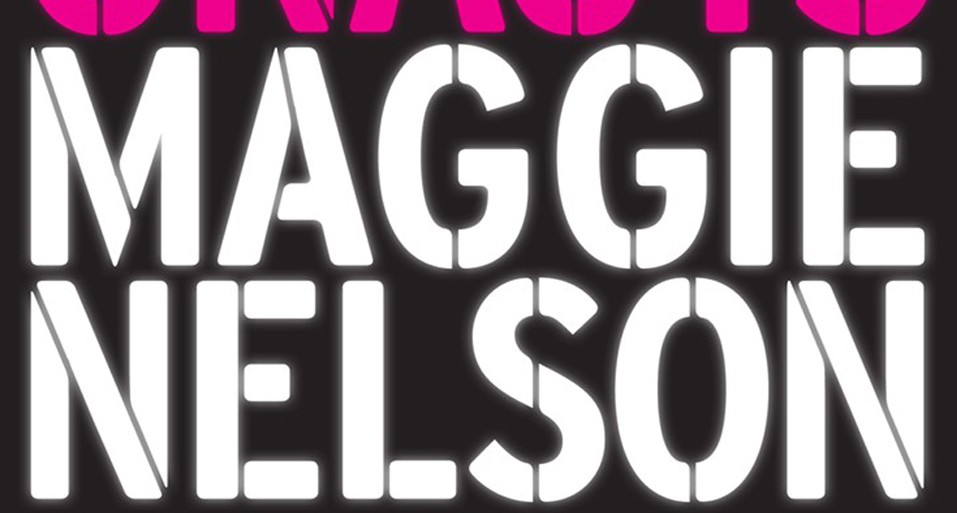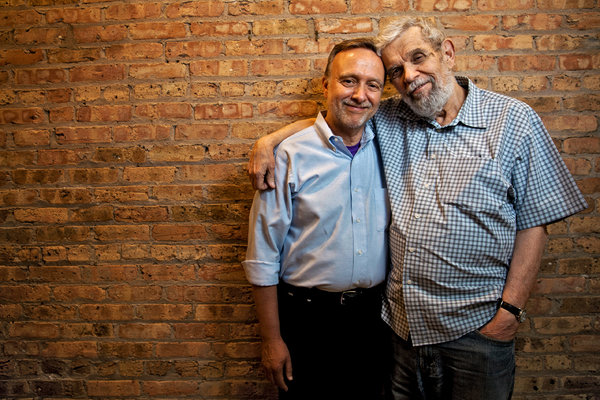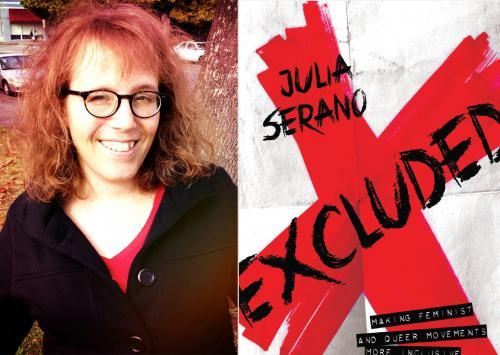
The Title’s Significance Keith Boykin, author of Beyond the Down Low, conceptualized the anthology For Colored Boys Who Have Considered Suicide When The Rainbow Is Still Not Enough: Coming of Age, Coming Out, and Coming Home in 2010. It was the year that Tyler Clementi’s suicide brought national media attention to the victimization many young gay men endure at the hands of their peers. While Clementi’s plight garnered a strong public response, Boykin noticed that the suicides of young gay men of color like Carl Joseph Walker-Hoover, Jaheem Herrera, and Raymond Chase received little media attention. Boykin began to think about the discrepancy in representation and response to the plight of young gay men of color, and he wanted to foster more awareness about the treatment of this group. During this time, Ntozake Shange’s choreopoem For Colored Girls Who Have Considered Suicide When the Rainbow Is Enuf had been made into film that depicted what it was like to be a woman of color. The popularity of the film inspired Boykin’s title, and he set to work compiling a literary collection that would reveal the experiences of gay men of color.
The Book’s Content
Boykin assembled essays and poems from African-American, Latino, and Asian-American men that included often taboo topics: sexual abuse, racism, suicide, HIV/AIDS, and homophobia. He was sure to include voices that captured different geographic regions of the United States, various age groups as well as numerous different occupations. By doing so, he compiled a text that strives to be as inclusive as possible while also relaying some common experiences that gay men of color face.
A Review of “Pride” by James Earl Hardy
Hardy’s poem traces the derogatory names a young gay boy is called throughout his life. For example, “DIFFERENT is what his Mama called him;” “FAGGOT is what his father called him;” “SISSY is what his older brother called him;” “FUNNY is what his Nana called him.” Through their words, family and friends show their disappointment in him and try to force the unnamed child to conform. In this way, Hardy depicts how these words influenced the boy’s self-esteem and shaped his identity, to the point that he marries a woman:
“STRAIGHT
is what City Hall called him
…
And he knew it would please everyone
except himself”
However, Hardy does not the end the poem there. He has the boy grow, mature, and come into his own. In this way, Hardy effectively conveys the triumph a man has when he is able to accept his sexual identity despite the obstacles and struggles presented to him by a homophobic society. The poem concludes:
“It ain’t about a name
…
He always looked into the eyes of others
to define who he is
But now he looks in a mirror
and the beauty of his own dark brown eyes
…
He’s not on the outside looking in
He looked inside—himself—and found it
And PRIDE
is what he called it”
Summation
The range of the book’s topics are sure to evoke feelings of sadness and happiness, despair and hope, alienation and camaraderie. Some of the sections include “Growing Pains,” The Family that Preys,” “I’m Coming Out,” “For Colored Boys,” “When the Rainbow is not Enough,” In Sickness and Health,” and “Power to the People.” Boykin did a superb job crafting a text that represents the nuances of gay life for men of color.
For the past twelve years, Robin Petrovic has been teaching English Composition, Literature, and Gender & Women Studies at the University of Illinois at Chicago, where she infuses Queer Theory into all of her courses. In 2011, Petrovic co-founded Gay4Good: Chicago, an inclusive LGBT volunteer organization that donates its time to social welfare and environmental service projects. She is a former literature blogger for IntraSpectrum Counseling.
IntraSpectrum Counseling is Chicago’s leading psychotherapy practice dedicated to the LGBTQ+ community, and we strive to provide the highest quality mental health care for multicultural, kink, polyamorous, and intersectional issues. For anyone needing affirming and validating support in their healing, please click here or email us at help@intraspectrum-chicago.com.






 Today, July 26th, is National Disability Independence Day. This annual commemoration marks the day in 1990 when the Americans with Disabilities Act (ADA) was signed into law. The ADA enshrined several crucial civil rights protections for individuals with disabilities, but it still falls short of its intended goals after over 30 years on the books.
Today, July 26th, is National Disability Independence Day. This annual commemoration marks the day in 1990 when the Americans with Disabilities Act (ADA) was signed into law. The ADA enshrined several crucial civil rights protections for individuals with disabilities, but it still falls short of its intended goals after over 30 years on the books.